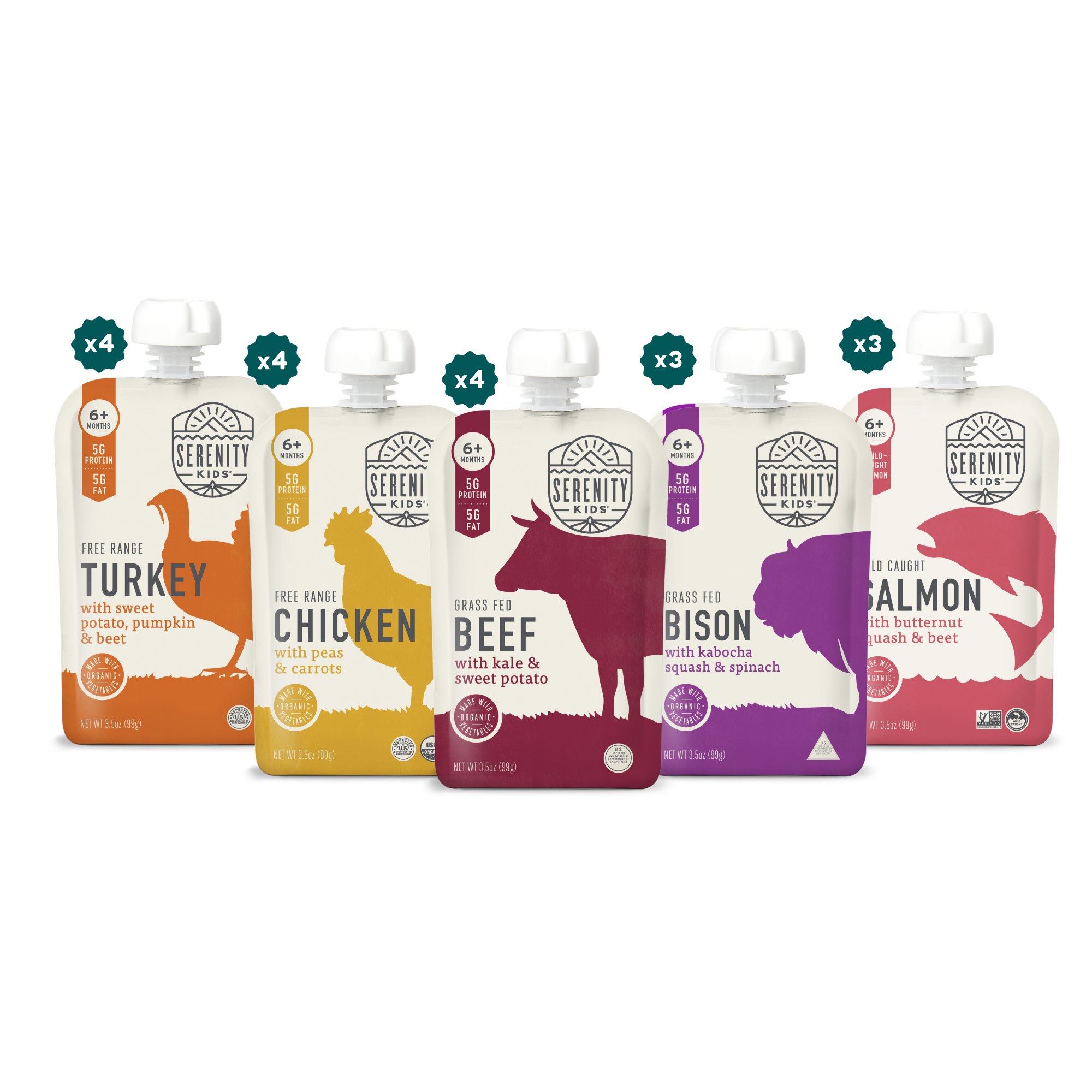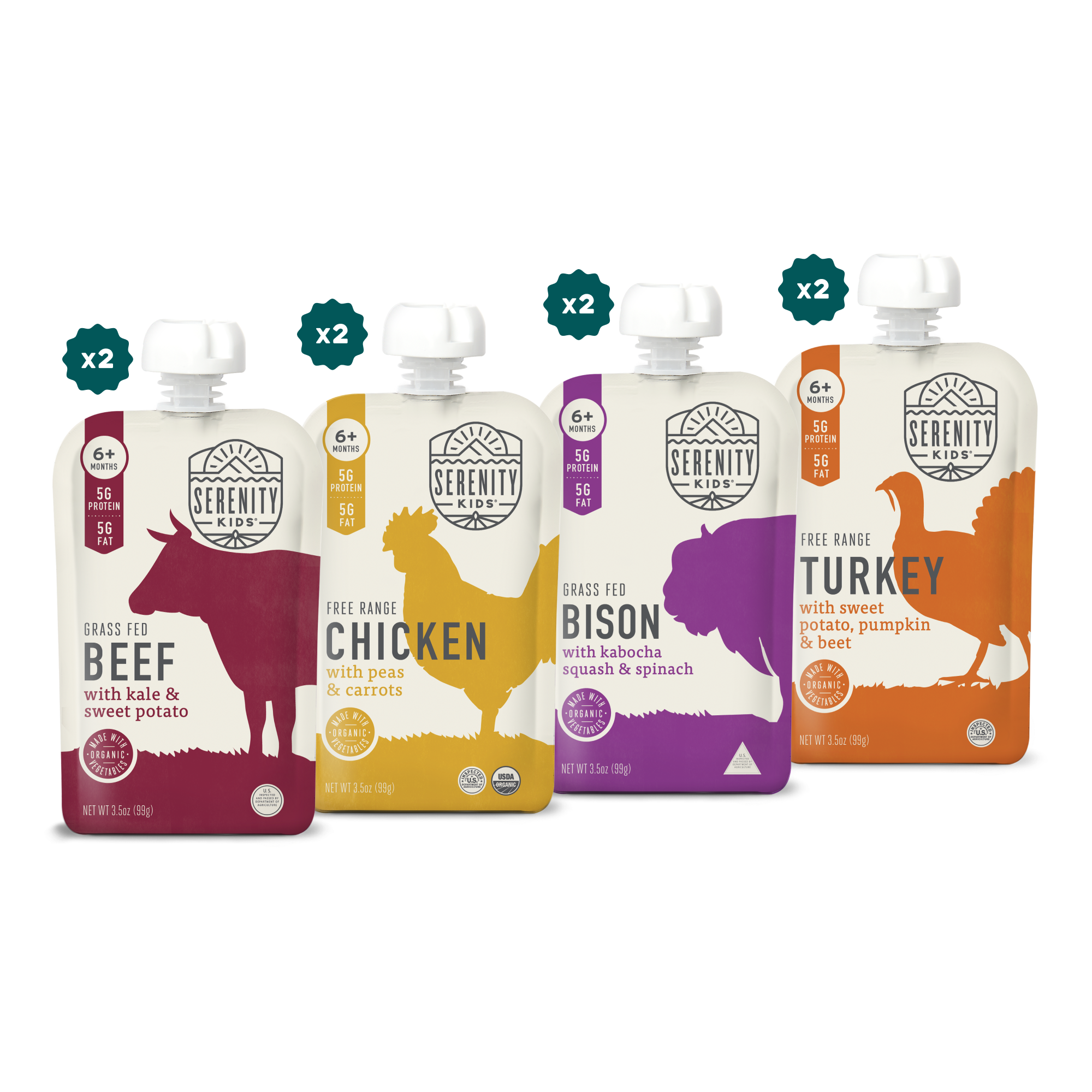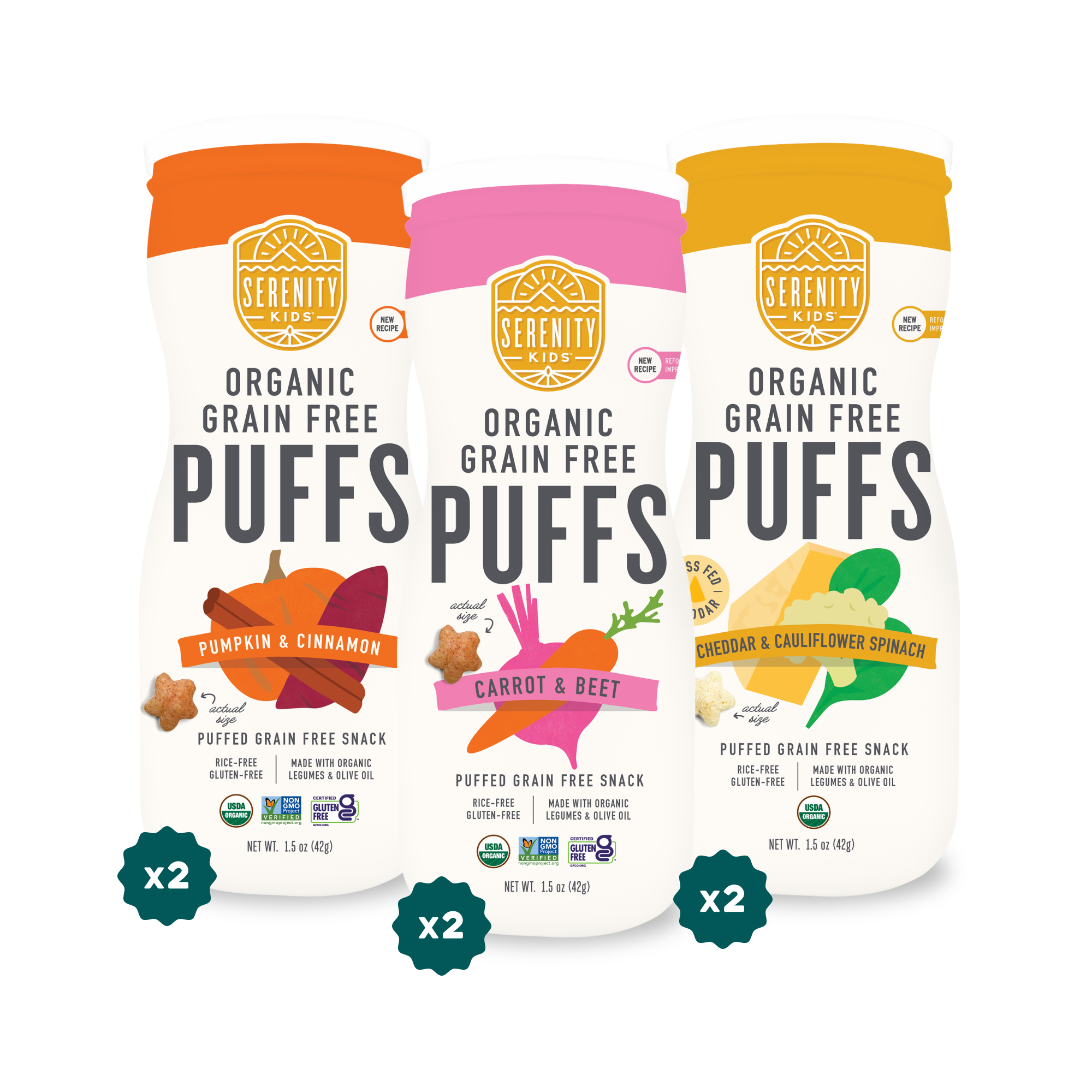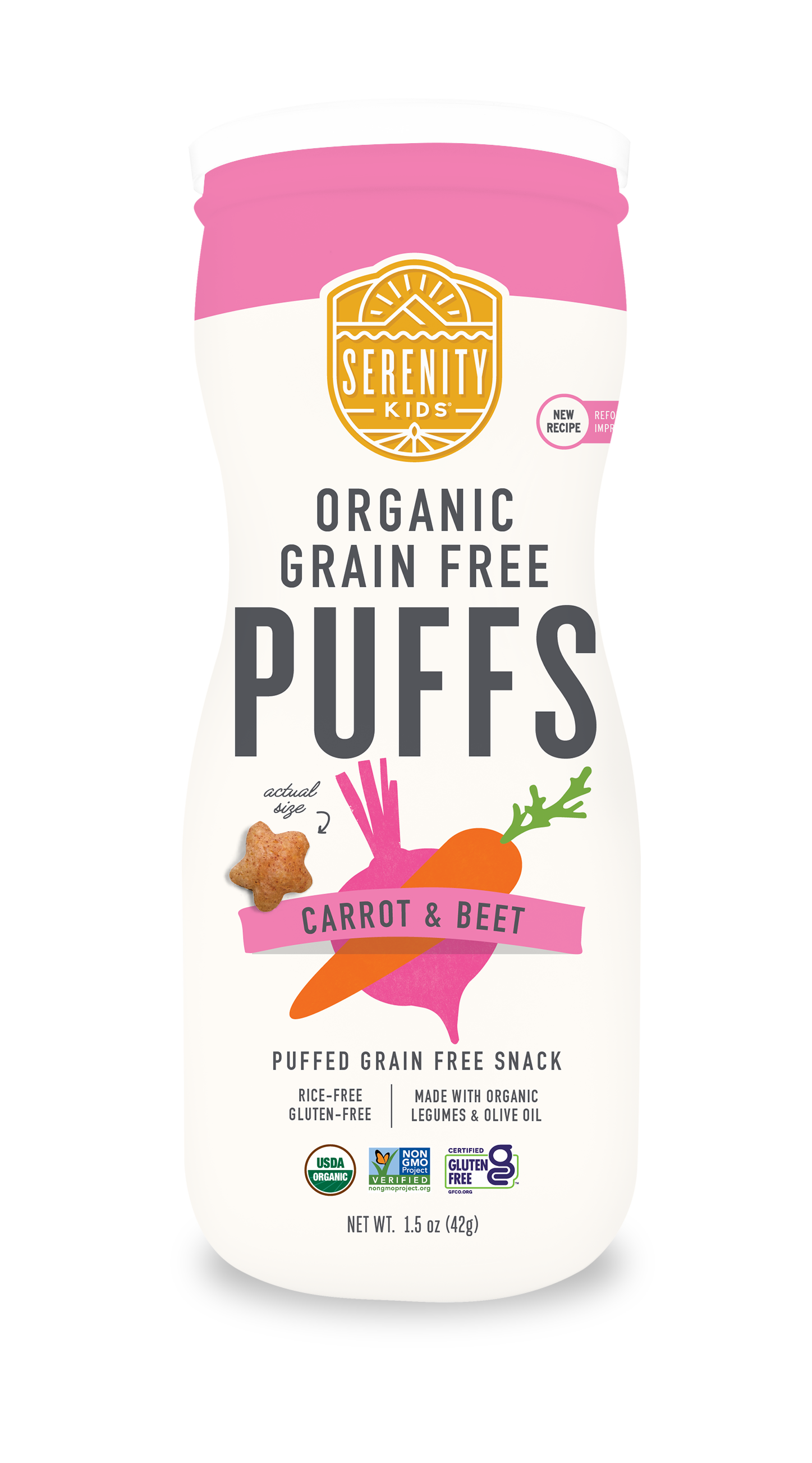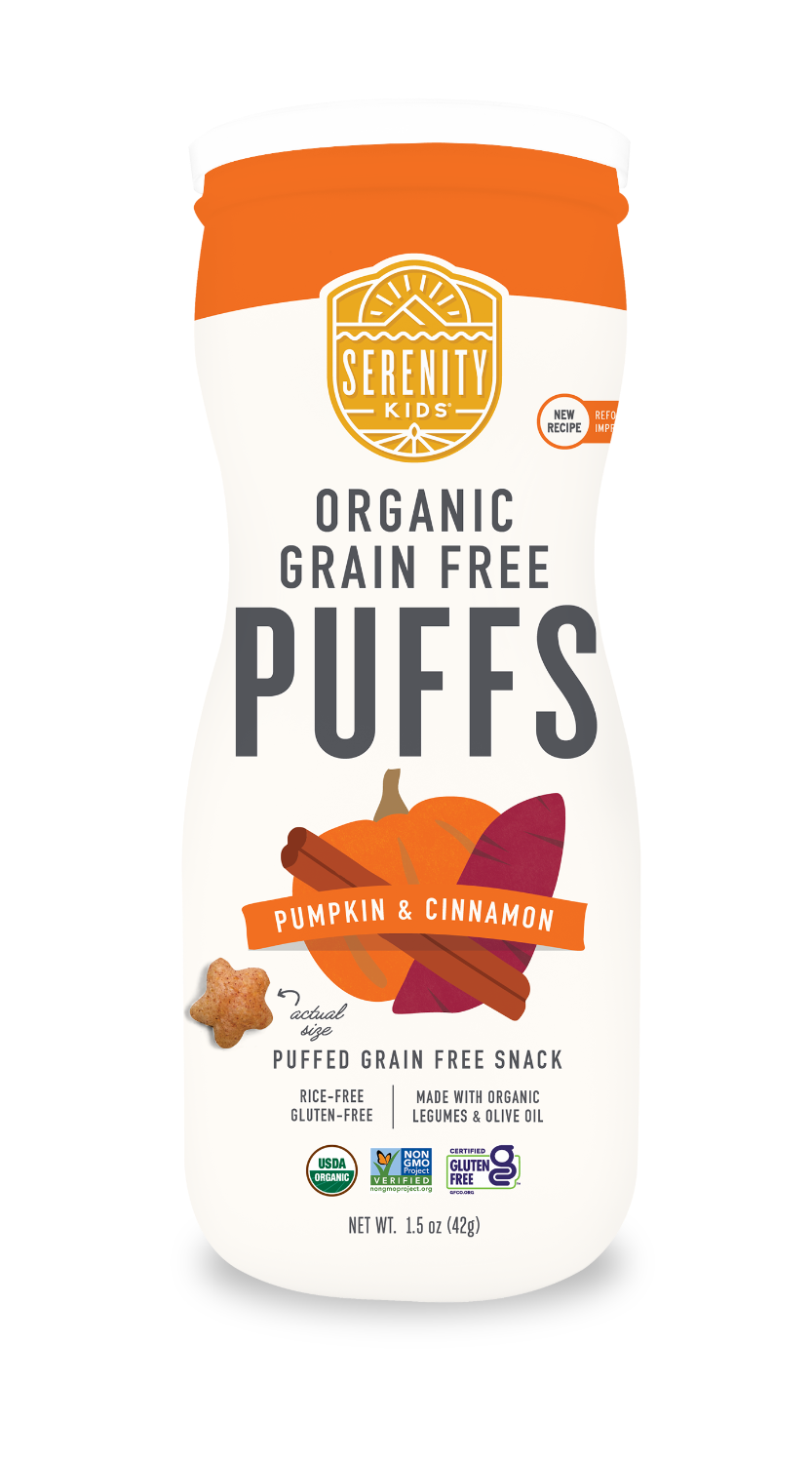TABLE OF CONTENTS
Written by Hillary Bennetts
April 22, 2024
Gentle Nourishment: What to Feed a Sick Toddler to Aid Recovery

Having a sick child is hard. When our little ones are feeling under the weather, helping them to feel comfortable while recovering typically becomes our top priority. As part of this, we try to provide nourishing foods and fluids.
While your little one might not always be up for eating, we're sharing some thoughtful tips around gentle nourishment for sick toddlers. From hydrating snacks to wholesome meals, join us as we share what we've learned about nurturing a sick toddler back to health with plenty of love and some delicious, healing foods.
Understanding the Needs of a Sick Toddler
When our little ones fall ill, their bodies are working hard to get better, and we want to try to support that process however we can. In this section, we'll explore the various factors that come into play when it comes to their appetite, digestion, and overall well-being during illness.
Factors affecting appetite and digestion
There are several reasons why a sick toddler might refuse food or have disrupted digestion. The most obvious is if the child has a gastrointestinal illness and simply isn't up for eating. However, there are other reasons a sick kid might not want to eat.
Sometimes illnesses simply suppress the appetite. When there is a fever or the body is otherwise fighting hard, the digestive system slows down and the child might not feel hungry. In addition, a sore throat can make it painful to eat, and even very congested sinuses can make it hard to breathe while eating, especially in younger kids. Finally, certain viruses can change taste perception and make foods taste different. They may have a metallic taste, or they may lose their sense of taste entirely.
Try to avoid pressuring a sick kid to eat if they don't want to. Let them listen to their body and trust their recovery, just focus on keeping them hydrated.
The role of nutrition in supporting recovery
If your child is open to eating, try to focus on foods rich in certain nutrients that can support their recovery. Prioritizing nutrient-rich foods can provide valuable support to your sick toddler's immune system and help in the recovery process. Below are some of the key nutrients to support immune function.
Vitamin C
Vitamin C functions as an antioxidant in the body and helps support immune function by supporting various cellular functions of both the innate and adaptive immune systems.
Vitamin C is found in strawberries, citrus fruits, red peppers, kiwi, and broccoli.
Vitamin D
Vitamin D can modulate the innate and adaptive immune responses. A deficiency in vitamin D is associated with an increased susceptibility to infection.
Vitamin D is not found abundantly in many foods but is present in fatty fish and fish liver oils. Smaller amounts are found in mushrooms and egg yolks. The body can synthesize vitamin D from the sunlight, so if the sun is shining and your toddler is up for some outside time, a stroller walk can be a good way to get some vitamin D and a change of scenery while you're at it.
Vitamin A
Vitamin A supports immune health by regulating immune cell response and supporting the integrity of the skin and mucous membranes.
Vitamin A comes in two different forms in foods. One group, called retinoids, comes from animal sources and includes retinol. The other group, called carotenoids, comes from plants and includes beta carotene. Retinol is the "active" form that is usable by the body, so the body needs to convert beta carotene to vitamin A. The efficiency of this conversion varies by person, but is not perfect. Therefore, it is good to eat foods from both sources.
Foods that include retinol include liver, salmon, and dairy products like cheese, and yogurt. Foods high in beta carotene include carrots, sweet potatoes, butternut squash, kale, and spinach. Aim to Pair plant foods high in beta carotene with some healthy fat. Even small amounts of fat enhance beta-carotene absorption and increase the amount available to convert into vitamin A.
Zinc
Zinc is crucial for the normal development and function of cells mediating nonspecific immunity, including neutrophils and natural killer cells.
Zinc is found in meat (especially red meat), shellfish (especially oysters and crab), legumes (like chickpeas and lentils), seeds (like hemp and pumpkin), and nuts (especially cashews and almonds).
Hydration is Key
Hydration plays a key role in avoiding dehydration and supporting the body's ability to fight off illness. Try different ways to provide hydration so that your little one can stay hydrated. For example, offer small sips of water or electrolyte solutions (we like LMNT). If your little one resists drinking, try a fun straw or a new cup for novelty. You can also freeze any fluid or smoothie into a popsicle or offer ice cubes or ice chips. Just try to avoid sugary drinks and sports drinks. Some oral rehydration solution products also tend to include artificial colors and flavors that we try to avoid.
Hydrating Foods & Beverages
Another way to stay hydrated is through hydrating foods and beverages. The following nutritious foods and drinks can help to hydrate your sick child without pushing water on them around the clock.
- Bone broth: Bone broth is loaded with a wide variety of minerals and amino acids that benefit the entire body. While the exact nutrient content varies, bone broth typically contains calcium, magnesium, copper, iron, manganese, phosphorus, potassium, sodium, and zinc. It also contains 17 different amino acids. If your toddler refuses to sip bone broth, ease in with one of Serenity Kids bone broth pouches!
- Watermelon: Watermelons are 92% water, and as a bonus, they have antioxidants, fiber, and vitamin C.
- Cucumbers: Cucumbers are made up of 95% water and also provide some nutrients vitamin K, potassium, and magnesium.
- Smoothies: Smoothies are always a great way to pack in nutritious foods. Load in some leafy greens, berries, protein, and healthy fats like nut butter, seeds, or avocado. If you don't feel like making your own, try one of Serenity Kids Dairy Free Smoothies.
- Herbal Tea: Warm tea can be comforting and healing as well as hydrating. A bit of raw honey added can help to soothe a sore throat.
- Oranges: Oranges are 88% water and they are also a good source of vitamin C - a great combination for sick kids!
- Breast milk: If you are still nursing or have some milk in the freezer, now would be a great time to use it! Breast milk is hydrating and nutritious. It also adapts to the needs of your little one by producing the illness-fighting cells needed in response to their saliva.
- Hot cocoa: For a sweet but still nourishing treat, try hot cocoa made with Serenity Kids Grass Fed A2 Milk toddler formula.
Nourishing comfort foods
So what to feed a sick toddler who is willing and able to eat? Comforting and nutrient-dense foods! Here are some ideas:
Homemade Chicken Soup
Chicken soup is the quintessential food for sickness. Be sure to use bone broth for added protein and nutrition.
Lentil Pasta
Pasta is a comfort food for lots of kids, and choosing lentil or other legume-based pasta means that you get the benefit of more protein and more fiber. Add a Serenity Kids Turkey Bolognese pouch for a quick and nutritious sauce.
Sauteed Apples
Thinly slice apples and then saute them in grass-fed butter, ghee, or coconut oil, then sprinkle with cinnamon and ginger. Add a scoop of collagen for some protein.
Tips for Encouraging Eating
Food can help to heal your sick toddler but don't force food. Make sure that they are hydrated and trust them to listen to their body - they will eat when they feel ready!
If there are any stomach issues, stick to plain foods that are easy to digest, and offer them in small portions until you're sure they'll stay down. As usual, you'll want to avoid any sugary foods or greasy foods that are heavy or hard to digest.
Below are some ideas for simple foods that are easy to digest:
- Mashed Sweet Potatoes: Mashed sweet potatoes are soft, soothing, and easy to digest. They're slightly sweet without a ton of sugar. Add some healthy fat like coconut milk, ghee, or olive oil to make it a more balanced meal or snack.
- Pancakes or waffles: These breakfast comfort foods can be made nutritious and enjoyed any time of the day. Check out recipe inspo here and here.
- Muffins: Muffins can be a little like smoothies - an opportunity to pack some serious nutrition into an otherwise simple snack. Try these Pumpkin & Squash Mini Muffins.
- Serenity Kids pouches: Serenity Kids has several options for easy-to-digest foods to feed a sick toddler. Some favorites for sick kids include Organic Roots and Organic Squashes.
When to Seek Medical Advice
Of course, there are times when you may not want to manage illness on your own. Signs that indicate a need for medical attention include persistent vomiting, persistent diarrhea, lethargy, trouble breathing or stridor, or signs of dehydration.
While nutrition plays a crucial role in supporting a sick toddler's recovery, dietary support may not always be enough. Sometimes supplementation or medication may be needed. You know your child best, so use your judgment, and don't hesitate to reach out to your healthcare professional for support.
Conclusion
We hope this article helps you to care for your sick toddlers with love and nourishment, knowing that each comforting meal or snack brings them one step closer to feeling like themselves again. With patience, empathy, and a well-stocked pantry of nurturing foods, we can navigate through illness with grace and resilience, supporting our little ones every step of the way.
You Might Also Like
· 1 min read · Recipes
· 7 min read · Education
























